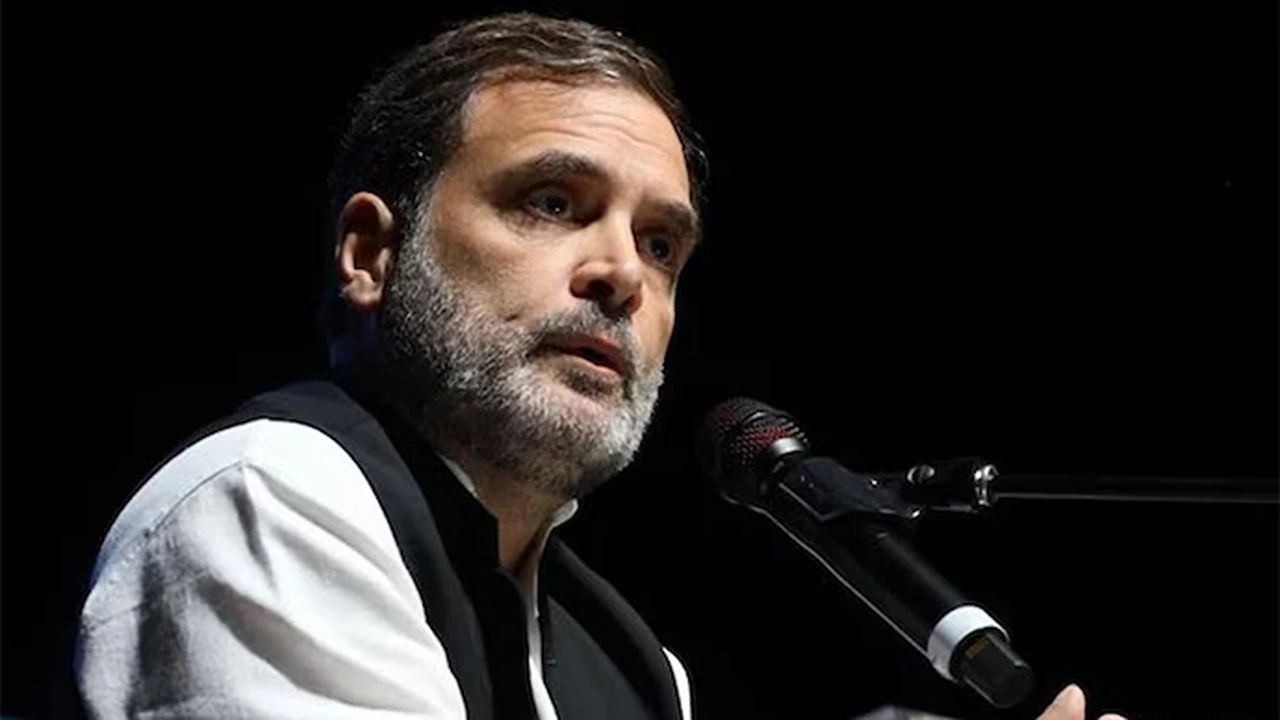Rahul Gandhi’s U.S. Yatra: A Bold Response to India’s Democratic Challenges
Rahul Gandhi’s U.S. Yatra: A Bold Response to India’s Democratic Challenges
Blog Article
[caption id="attachment_3122" align="aligncenter" width="1280"]
 Rahul Gandhi’s U.S. Yatra: A Bold Response to India’s Democratic Challenges[/caption]
Rahul Gandhi’s U.S. Yatra: A Bold Response to India’s Democratic Challenges[/caption]Rahul Gandhi’s U.S. Yatra: A Bold Response to India’s Democratic Challenges
Entertainment City - In a striking move, Rahul Gandhi’s U.S. Yatra, a key figure in Indian politics, has embarked on a Yatra to the United States. His decision is fueled by concerns about India's democratic processes. This journey, marked by high drama, aims to address what Gandhi sees as serious issues in Indian democracy. His actions have not only drawn attention but have sparked widespread debate about the state of democratic governance in India.
The Context: Why Gandhi Chose the U.S. for His Yatra
A Critical Response to Democratic Failures
Rahul Gandhi’s Yatra is a Birthday Bonus direct response to his concerns about the democratic process in India. He believes that the current system is failing. Gandhi argues that the political climate has become increasingly hostile to dissent and that democratic institutions are weakening.
- Concerns About Democracy: Gandhi has highlighted several issues, including the erosion of institutional integrity and the suppression of free speech. According to him, these problems jeopardize the democratic fabric of India.
- Seeking International Attention: By taking his message to the U.S., Gandhi aims to bring global attention to these issues. His goal is to galvanize international support and pressure the Indian government to address these democratic deficits.
The Significance of the Yatra
The Yatra is more than just a physical journey; it carries significant symbolic weight. Gandhi’s move is intended to showcase his dedication to democratic values.
- Symbolic Representation: The Yatra symbolizes Gandhi’s commitment to promoting democracy. It represents his broader efforts to rally support for democratic reforms.
- Strategic Outreach: Additionally, Gandhi aims to connect with the Indian diaspora in the U.S. This engagement is strategic, as the diaspora can play a pivotal role in influencing both public opinion and policy.
Key Messages from Gandhi’s U.S. Tour
Criticizing the State of Indian Democracy
During his tour, Rahul Gandhi has made several Rahul Gandhi’s U.S. Yatra critical statements Entertainment City about India’s democratic health. His criticisms focus on several key areas.
- Institutional Erosion: Gandhi has pointed out the weakening of democratic institutions in India. He claims that the judiciary, media, and electoral bodies are increasingly compromised.
- Suppression of Dissent: Furthermore, Gandhi argues that political dissent is being systematically suppressed. He believes that freedom of expression is under threat.
Seeking Global Support Rahul Gandhi’s U.S. Yatra
Gandhi’s tour is also aimed at rallying international support. He hopes to draw global attention to the issues he has highlighted.
- Building International Solidarity: By speaking to international audiences, Gandhi seeks to build a network of global supporters. This support could help in advocating for democratic reforms in India.
- Engaging the Diaspora: Gandhi’s engagement with the Indian diaspora is another critical aspect. The diaspora’s influence and connections are vital for amplifying his message and fostering broader international dialogue.
Reactions and Implications: How the Yatra Affects Indian Politics
Domestic Responses
The response to Gandhi’s Yatra within India has been varied. Reactions range from support to criticism, reflecting the polarized nature of Indian politics.
- Supportive Voices: Supporters of Gandhi view his Yatra as a brave stand for democracy. They argue that his efforts are necessary to restore democratic values and enhance accountability.
- Criticisms: Critics, however, believe that Gandhi’s actions might undermine national unity. They argue that his focus on international criticism could destabilize the political landscape.
International Repercussions
Gandhi’s tour has also had significant international implications. It has brought attention to the state of democracy in India and could influence international relations.
- Global Awareness: His statements have sparked global discussions about Indian democracy. This increased awareness could lead to international scrutiny and pressure on the Indian government.
- Impact on U.S.-India Relations: The tour may also affect diplomatic relations between the U.S. and India. How the U.S. and other international bodies respond to Gandhi’s claims could shape future diplomatic engagements.
Media Coverage and Public Perception Rahul Gandhi’s U.S. Yatra
The Role of Media
Media coverage has played a crucial role in shaping the narrative around Gandhi’s Yatra. The coverage has varied in focus and tone.
- Focus of Coverage: Media outlets have extensively covered Gandhi’s criticisms and his appeals for international support. This focus has amplified his message and contributed to the broader discourse on Indian democracy.
- Public Discourse: The media’s portrayal of the Yatra has influenced public opinion. Discussions on social media and public forums reflect a range of views on Gandhi’s actions.
Public Opinion
Public opinion on Gandhi’s Yatra is mixed. Views on his actions vary, reflecting broader political divides.
- Supportive Opinions: Some see Gandhi’s actions as a crucial step toward addressing democratic issues. They believe his efforts will lead to greater transparency and reform.
- Critical Opinions: Others view his actions as potentially destabilizing. They argue that his focus on international criticism might exacerbate existing political tensions.
Conclusion: Gandhi’s Yatra as a Pivotal Moment
Rahul Gandhi’s Yatra to the U.S. represents a critical moment in the ongoing debate about democracy in India. His journey underscores his commitment to addressing democratic challenges and seeking international support for reform.
As the situation develops, the impact of Gandhi’s actions will continue to shape both domestic and international perspectives. His tour highlights the complex interplay between national politics and global advocacy. It also underscores the challenges and opportunities in the quest for democratic renewal.
In summary, Gandhi’s Yatra is a bold statement about the state of Indian App Download democracy and a call for global solidarity. How his efforts influence the political landscape and international relations remains to be seen.